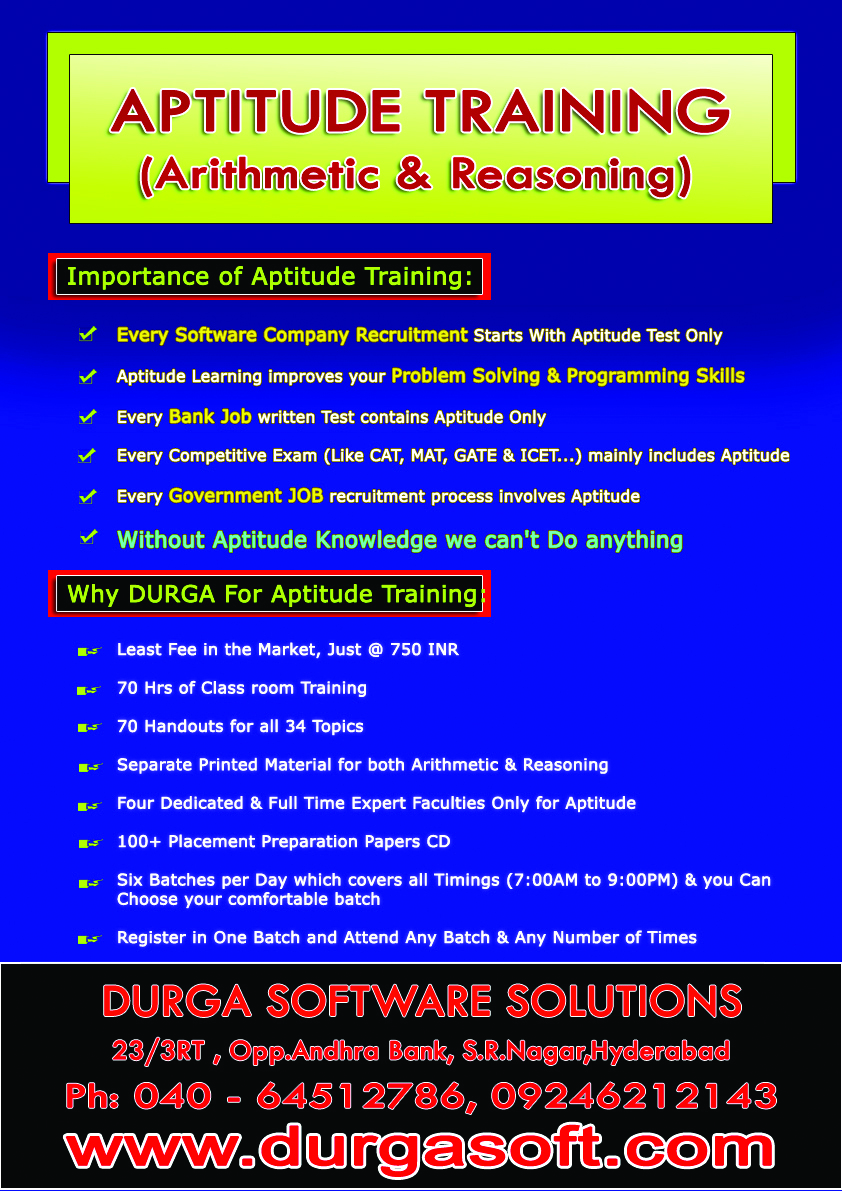Batch
Date: November
2nd @ 9:00AM to 1:00PM
Faculty: Mr. Lokesh
Duration: 1 day - four hours
Fee: 200 INR
Location : S.R Nagar, Hyderabad.
** Complete Material wii be Provided.....
ATTEND ALL JAVA REAL TIME TOOLS (ANT,AJAX,LOG4J,Maven,SVN,JUNIT,CVS&JASPER REPORTS) WITH Rs.1000 ONLY.
Attend Multiple Tools (More Than One Tool) Each Tool 150 INR Only
 Synchronous
Communication
Synchronous
Communication
 Asynchronous communication
Asynchronous communication
 Introduction to Ajax
Introduction to Ajax
 Classic web applications Architecture
Classic web applications Architecture
 Ajax based web applications architecture
Ajax based web applications architecture
 Ajax engine creation
Ajax engine creation
 Properties of Ajax engine
Properties of Ajax engine
 Methods of Ajax engine
Methods of Ajax engine
 Ajax application flow
Ajax application flow
 Sample examples
Sample examples
Check for more info............ http://www.durgasoft.com/Ajax%20lokesh%20add.asp
Faculty: Mr. Lokesh
Duration: 1 day - four hours
Fee: 200 INR
Location : S.R Nagar, Hyderabad.
** Complete Material wii be Provided.....
ATTEND ALL JAVA REAL TIME TOOLS (ANT,AJAX,LOG4J,Maven,SVN,JUNIT,CVS&JASPER REPORTS) WITH Rs.1000 ONLY.
Attend Multiple Tools (More Than One Tool) Each Tool 150 INR Only
Venue
:
DURGA SOFTWARE SOLUTIONS at S.R NAGAR
23/3RT IInd Floor,
Opp.Andhra Bank,
Near Umesh Chandra Statue,
S.R.Nagar,
Hyderabad - 500038,
Ph.No : 040 - 64512786, 09246212143
Syllabus:
DURGA SOFTWARE SOLUTIONS at S.R NAGAR
23/3RT IInd Floor,
Opp.Andhra Bank,
Near Umesh Chandra Statue,
S.R.Nagar,
Hyderabad - 500038,
Ph.No : 040 - 64512786, 09246212143
Syllabus:
- readyState
- onreadystatechange
- status
- responseText
- responsseXML
- open(-,-,-)
- Send()/send(String)
- setRequestHeader(-,-)
Check for more info............ http://www.durgasoft.com/Ajax%20lokesh%20add.asp

